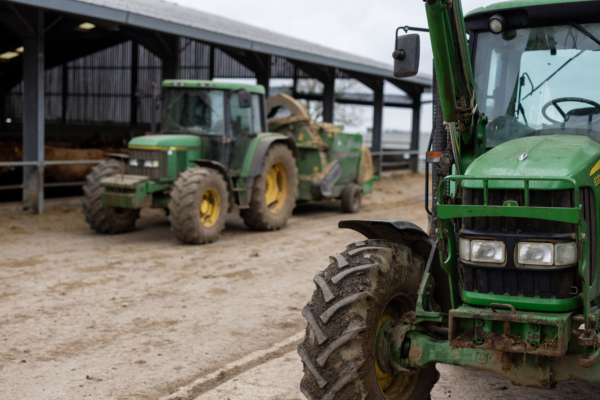

April saw two major changes affecting agricultural employers, employees, landlords and tenants – The Agricultural (Wales) Order 2024 in Wales, and the new Agricultural Landlord and Tenant Code of Practice in England.
Changes to rates of pay for Welsh agricultural workers
The increases in minimum wage rates and allowances for Welsh agricultural workers may also affect employers whose land crosses the border into and out of England. The Agricultural Wages (Wales) Order 2024 (SI 2024/390) (W69) (AWO 2024) came into force on 1 April 2024, revoking and replacing the Agricultural Wages (Wales) Order 2023.
The new rates are as follows:
| Grade | Minimum rate from 1 April 2024 |
|---|---|
| A1 – Agricultural development worker (16-17 years) | £6.56 |
| A2 – Agricultural development worker (18-20 years) | £8.82 |
| A3 – Agricultural development worker (21+ years) | £11.73 |
| B1 – Agricultural worker (16-17 years) | £6.56 |
| B2 – Agricultural worker (18-20 years) | £8.82 |
| B3 – Agricultural worker (21+ years) | £11.79 |
| C – Agricultural advanced worker | £12.27 |
| D – Senior agricultural worker | £13.46 |
| E – Agricultural manager | £14.77 |
| Apprentice Year 1 | £6.40 |
| Apprentice Year 2 and beyond (16-17 years) | £6.40 |
| Apprentice Year 2 and beyond (18-20 years) | £8.60 |
| Apprentice Year 2 and beyond (21+ years) | £11.44 |
It is crucial for employers with land crossing the Welsh border to assess whether the new rates apply to their workers as, if it does, it is a criminal sanction not to pay the rates above.
The grading structure implemented previously, which specifies the different grades and categories of agricultural workers based on their experience and qualification, is laid out in articles 5 to 9 of AWO 2024. It will determine the minimum wage for each individual employed in agriculture in Wales, regardless of whether the whole of the work is undertaken in Wales or not.
AWO 2024 also addresses overtime rates, in that they must be paid in accordance with the agricultural worker’s actual hourly rate of pay as opposed to the minimum, and includes provisions about time, holiday pay, sick pay and bereavement leave.
An issue which frequently arises is how the Welsh provisions apply to cross-border agricultural land. The policy of the agriculture and rural affairs division of the Welsh government and Defra has been that:
For a business based in England but whose workers may work in Wales on a limited ad-hoc basis, National Minimum Wage (NMW) conditions will apply.
For a business based in Wales, but whose workers may work in England on a limited ad-hoc basis, the rates applicable to agricultural wages in Wales apply.
Where land is split over the English and Welsh border, employers must therefore be vigilant as to which regulations apply to their workforce and should be able to justify their decision. Employers should keep a record of their reasons and ensure that contracts of employment reflect the regulations which apply.
The New Agricultural Landlord and Tenant Code of Practice for England
April also saw the launch in England of a new Agricultural Landlord and Tenant Code of Practice created by an expert working group. The Code of Practice is founded on the three principles of clarity, communication and collaboration in the tenanted sector and has been hailed as “a really good start” by the NFU Deputy President, following years of NFU campaigning.
The new code follows a key recommendation from the Rock Review which gave more than 70 recommendations, designed at creating a resilient agricultural tenanted sector for the future, and balancing the rights of tenants and landlords.
The code provides guidance on the standards of behaviour expected from landlords and tenants, as well as those providing professional advice in connection with agricultural tenancy matters. Specific sections cover:
- The initial grant of a tenancy
- Routine engagement during the term of the tenancy
- Payment of rent
- Rent reviews
- Improvements
- Access to environmental schemes and other business opportunities
- Termination or renewal
- Disputes.
This is a positive document; the wording encouraging parties, at all times, to minimise the cost of formal dispute resolution ensuring that an approach is proportionate in all the circumstances.
Where possible parties are encouraged to consider Alternative Dispute Resolution (ADR). The code specifically suggests that dispute resolvers should look at compliance with the code when being asked to make costs awards in the exercise of their discretion in relevant cases.
Our Agriculture and Estates team deal with both transactional and contentious farming tenancy matters and hope that the code will assist landlords/tenants and their professional advisers.













